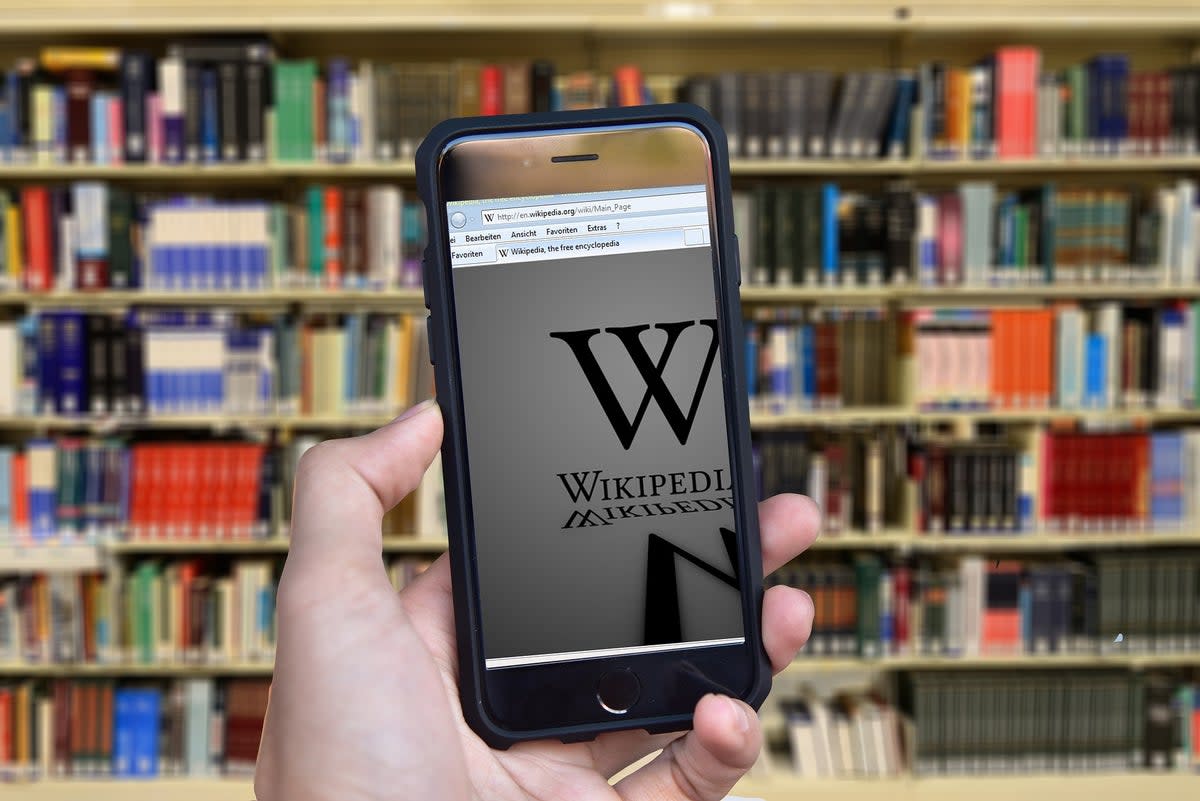Wikipedia’s ‘suspicious’ edits could be pro-Russian campaigns, study suggests

Wikipedia is being leveraged to change the perception of the Russo-Ukrainian war, via systematic manipulation of articles, a new study has suggested.
The online encyclopaedia, which is visited by more than one billion people each month, is many people’s first port of call for information – and as such has several defences against vandalism.
Despite being able to be edited by any user, pages can be locked and protected, as well as safeguarded by bots that look for suspicious behaviour and human editors that can make executive decisions.
However, companies and other individuals seek to control public narratives through Wikipedia pages through tactics such as undisclosed paid editing, according to the report from the Institute for Strategic Dialogue (ISD) and the Centre of the Analysis of Social Media (CASM).
‘Reputation protection’ or ‘reputation management’ companies seek to change damaging information about their clients, and while Wikipedia does not encourage this behaviour, it is allowed as long as it does not conflict with their policies.
The report analysed the activity of 86 editors that had been banned for breaching Wikipedia’s code of ethics and found that they had a history of making edits to the Wikipedia page for the war. “22 edits containing 37 domains were considered by analysts to be state-sponsored or affiliated,” the report said.
“Of course, there are a number of reasons why any editor might add a link on Wikipedia. The team therefore manually assessed the edits containing these links, and found that 16 of these 22 edits were contentious, exhibiting narratives consistent with Kremlin-sponsored information warfare.”
This includes adding Kremlin quotations and press releases explicitly into the page to make pro-Russian arguments more prominent.
The Wikimedia Foundation did not respond to The Independent’s request for comment before time of publication.
The report said that proving coordination between banned editors and attributing their behaviour to any external force is difficult. Moreover, it points out that there is little precedent for government manipulation on Wikipedia.
“There are few known instances of illicit behaviour on Wikipedia clearly attributed to a state. Perhaps the clearest attributions are edits made from known Government IP addresses, and a number of bots on Twitter monitor this activity, highlighting incidents when they occur. These edits do not imply any sort of coordinated or concerted campaign, and IP addresses can be easily spoofed or obscured,” the report said.
That is not to say that it does not happen; Wikipedia banned a number of editors last year that were aiming to promote "the aims of China, as interpreted through whatever filters they may bring to bear", allegedly "pushing for the use of Chinese state media as reliable news sources" in Wikipedia articles.

